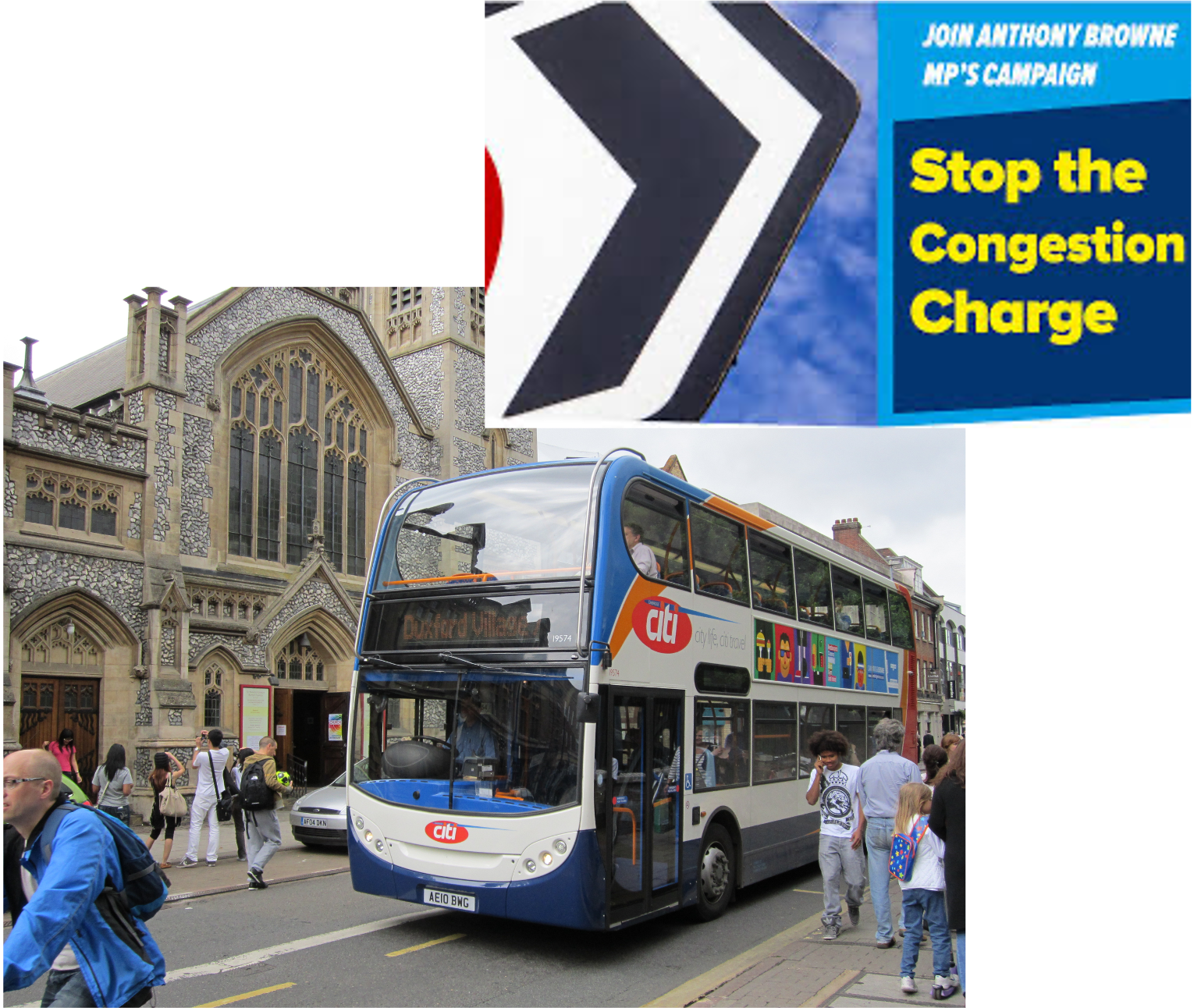Ten days to go, and there are serious differences of view about the proposed Congestion Charge for one of the UK’s premier University towns.
It has had a traffic problem for decades, but now the Greater Cambridge Partnership has proposed a radical plan – a £5 charge designed to reduce car traffic by 50% and a massive investment to transform the bus network and facilitate walking and cycling.

The Partnership claims that its proposal is “shaped by extensive consultations”, though many of these were more about identifying the problems and discovering stakeholder attitudes than examining potential solutions. In 2019, a Citizens Assembly of 60 people was held and recommended a bold action plan, though again it did not delve deeply into the mechanics of a Congestion Charge.
So, the current consultation is really important, for, as Elizabeth Gammell and I noted in The Politics of Consultation, it is only when specific proposals emerge that the realities of political power start to emerge. Even when, as in Cambridge, there has been abundant ‘pitch-rolling’, the true extent of controversy only begins to reveal itself when the theory becomes forseeable reality.
The Cambridge experience in consulting the public is likely to be of interest to many towns and cities which may also need to look at ways to reduce car/commercial traffic either for congestion or clean air reasons in the next few years.
Here are some observations:
- When public bodies convince themselves they are doing the right thing, they naturally wish to ‘persuade’ their citizens. There is a great danger of ‘over-selling’ the benefits and being a little less open about the problems and the difficulties.
- The Cambridge consultation brochure is a perfectly good version of the genre but looks weak on the drawbacks. For example, amid the pages and pages extolling the benefits of the proposals is a solitary page about some of the downside. Here is part of what it says:
The EqIA assessment highlights (paragraph 8.2.5) that there may be some disproportionate
impacts on certain groups. We commit to doing further work with those affected, local
authorities and community groups over the coming months to understand how we can address
them. This includes:
-
-
- Gypsy and Traveller groups.
- People with reduced mobility but who do not qualify for either a Blue Badge or low-income discounts.
- People with Protected Characteristics that rely on informal care provision.
- People accessing Special Education Needs provision where public transport is not an appropriate option; and
- People on low incomes and how the proposed low-income discount
-
There’s nothing wrong with this analysis, except the vagueness of “We know they are a problem,
and we will work on it”. Nothing much about residents within the zone whose jobs and need fo
car travel cannot be met by public transport. The Conservative Party who oppose these
proposals seem to have struck a chord on this oversight and are amassing an impressive
petition.
- The reason for uncertain and hesitant impact assessments lie in the inherent problem with all proposals of this kind. Making them attractive to communities means serious investment in public transport, and, at the moment, no-one can be 100% sure whether this will be forthcoming. Tackling the problems facing some affected people needs a set of mitigation measures about which the scheme promoters cannot be wholly certain. It leaves them having to say – as they do in Cambridge – “Trust us; the cash we will put into buses before we introduce the congestion charge will so transform the city, so that all your fears and anticipated costs will disappear”
- This is a tough ask when public confidence in politicians is at a historic low, and when inflation, economic mismanagement, renewed austerity et al produce a cost-of-living-crisis where everyone knows the Government cupboard is bare.
In summary, the people of Cambridge are being consulted on proposals which the Partnership fervently hopes they can deliver. It may be the right thing for the planet. It may be great for student cyclists, tourists, and lots of other people. But as with many changes needed in our towns and cities in the coming years, there will be winners and losers, and one worries whether our forms of consultation, and the attendant politics will secure for those people and those that represent them a sufficient voice to be heard and be accommodated.
See Rhion's Speeches, Talks and Presentations.
For More like this - free of charge: SUBSCRIBE now
Leave a Comment
I hope you enjoyed this post. If you would like to, please leave a comment below.